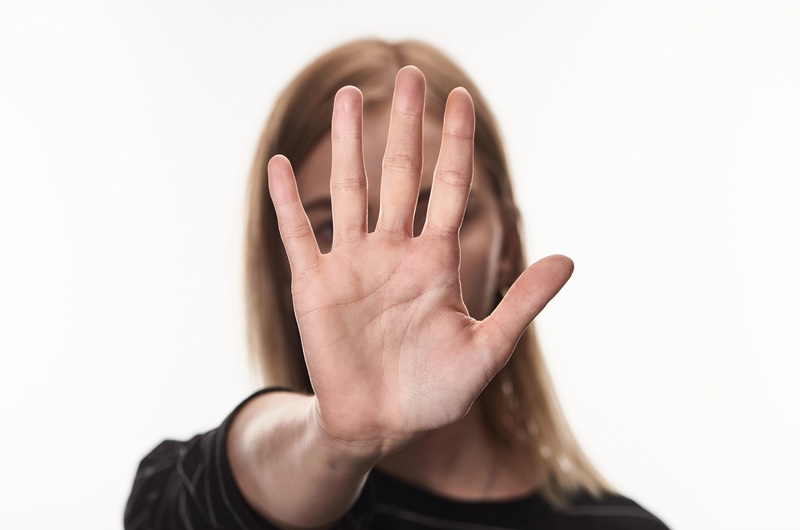What Is The Consular Process?
”El Show Sin Fronteras”
The Consular Process is the legal procedure for applying for an immigrant Visa in a foreign country, particularly when an immigrant is seeking status through a Family Petition in the United States.
It’s worth noting that approximately 16.2 million people live in mixed-status families, where some individuals have citizenship, Green Cards, DACA, TPS, or undocumented status.
Obtaining legal status can be particularly challenging for families, as the process can involve separation and a lot of unknowns. It is essential to be well-informed before embarking on the Consular Process to navigate it with confidence.
During the Consular Process, the immigrant will typically first file a petition with the U.S. Citizenship and Immigration Services (USCIS) in the United States.
Once the petition is approved, the case is sent to the National Visa Center (NVC), which will then send the case to the appropriate U.S. Embassy or Consulate in the foreign country where the immigrant is residing.
The immigrant will then attend an interview at the Embassy or Consulate, during which their eligibility for a Visa will be determined.

As mentioned earlier, the Consular Process is commonly used when the immigrant is obtaining status through a Family Petition. It can also be used for employment-based Visas, Diversity Visas, and certain special Immigrant Visas.
The Consular Process can be complex and time-consuming, and the wait time for an interview at the Embassy or Consulate can vary depending on a variety of factors, such as the type of Visa being applied for and the workload of the Embassy or Consulate.
It’s important for those going through the consular process to stay informed and prepared throughout the process to ensure the best possible outcome.
Who Applies For The Consular Process?
Individuals who are not eligible to adjust their status in the United States, such as those who entered the country without any documentation or who have violated their Visa status, may still be able to obtain a green card through the consular process.
The Consular Process involves applying for an Immigrant Visa at a U.S. Embassy or Consulate in their home country or country of current residence. The eligibility for the Visa will be determined during an interview at the Embassy or Consulate.
It’s important to note that the Consular Process can be complex and time-consuming. Therefore, individuals should seek the guidance of an experienced immigration lawyer to navigate the process and maximize their chances of success.
What Are The Steps Of The Consular Process?
The Consular Process is typically a three-step process, although it may vary depending on individual circumstances. The first step is the alien petition, also known as the petition for alien relatives, which establishes the family relationship between the petitioner and the beneficiary.
If the petitioner is applying through a family member, they must prove that the beneficiary is indeed their family member.
One challenge that individuals who entered the United States without documentation may face is triggering the 10-year bar when leaving the country to obtain a Green Card through the Consular Process.
The 10-year bar is a consequence of being unlawfully present in the United States for a certain period.
However, the Government provides a provisional waiver to individuals who can demonstrate that their departure from the United States would cause extreme hardship to their U.S. citizen spouse or parent.
The provisional waiver is like asking for forgiveness in advance of triggering the 10-year bar.
Once the provisional waiver is granted, the individual can leave the United States and proceed with the Consular Process.
The final step is obtaining the Green Card, which is the ultimate goal of the Consular Process.
What Are The Disadvantages Of The Consular Process?
One disadvantage of the Consular Process is that if an individual needs additional waivers for things like fraud or misrepresentation, they will have to wait for those waivers to be processed before continuing with the process.
This can lead to extended periods outside of the U.S., which can be a disadvantage for some individuals.
However, this is not necessarily a disadvantage of the process itself, but rather a necessary step in obtaining a Green Card.
In terms of whether the Consular Process is better than the adjustment of status, it depends on the individual’s situation and preferences.
If traveling outside of the U.S. is important to the individual, then, the Consular Process may be a better option since adjustment of status requires the individual to stay in the U.S. while their application is being processed.
On the other hand, if staying in the U.S. is not a problem and the individual wants to avoid the hassle of traveling outside of the U.S., then adjustment of status may be a better option.
Ultimately, the decision of which process to pursue should be based on the individual’s specific circumstances and needs.
Why Do You Have To Leave The Country For A Consular Process?

One reason why leaving the country may be necessary is if the person entered the United States without inspection.
This means they entered the country illegally without going through an immigration checkpoint.
In such cases, the person is not eligible to adjust their status within the United States and must leave the country to apply for a green card through consular processing.
Another reason why someone may have to leave the country for the Consular Process is if they have violated their status in some way.
For example, if someone entered the country on a Temporary Visa and overstayed their authorized period of stay, they may be considered out of status and not eligible to adjust their status within the United States.
In this case, they would have to leave the country to apply for a Green Card through the Consular Process.
It is crucial for individuals considering the Consular Process to understand the eligibility requirements and potential drawbacks associated with this option.
Ultimately, the decision between the Consular Process and the adjustment of status depends on the individual’s specific circumstances and priorities.
Consulting with an experienced immigration attorney can provide valuable guidance and support throughout the process, helping individuals make informed decisions about the best course of action for their situation.
Do DACA Holders Have To Do The Consular Process?
DACA holders may wonder if they have to go through the consular process to obtain a Green Card. The answer depends on whether the DACA holder has traveled on Advanced Parole.
If the DACA holder has traveled on Advance Parole and obtained legal entry, then they are eligible to adjust their status and obtain a Green Card without leaving the United States.
However, it’s important to note that this option is not available to all DACA holders.
To determine eligibility for adjustment of status, it’s recommended to check with an immigration attorney.
They can provide more information about the specific requirements and steps involved in the process.
For DACA holders who are interested in adjusting their status in the future, applying for DACA Advance Parole can be a good option.
This provides the added benefit of obtaining a legal and long-lasting entry, in addition to the opportunity to travel and see family.
Do I Need Consular Process If I Feel Unsafe Returning To My Country?
If you have a fear of returning to your country, there may be an asylum possibility for you. It’s important to explore why you fear returning and what has happened to you in the past or what may happen in the future.
If asylum is an option for you, it’s worth pursuing to avoid risking your safety.
In case you’re not eligible for asylum or not comfortable with that option and still want to apply through a family member, there are some ways of going around the Consular Process.
Some consulates allow what’s called third-party processing, which means that even if you’re not a national of that country, you may be able to process your application there.
Frequently the U.S. Consulates in Mexico process Mexican nationals but some Consulates may allow you to apply for a Visa even if you don’t have residency or status in that country.
In some cases, third-party consulate processing may be a viable option for you, so you don’t have to risk returning to your home country.
Ultimately, the decision is yours to make based on your circumstances. It’s important to weigh your options carefully and consult with an immigration attorney or other experts who can help you evaluate the risks and benefits of each approach.
Is There A Consular Process Interview?
Yes. The Consular Process interview is the final step in the process of obtaining a Visa or Green Card.
Essentially, during the interview, the Consulate officials are looking for three things: Public Health, Public Safety, and Public Charge.
Public Health is ensured through a medical exam that the applicant must take before the interview. This exam ensures that the applicant does not pose a risk to public health and has all necessary vaccinations.
Public Safety is established through a police clearance. The consulate officials will want to make sure that the applicant does not have any criminal history that could pose a risk to public safety.
Public Charge is established through the sponsor’s Affidavit of Support and financial documentation. The Consulate officials will want to make sure that the applicant has a sponsor who can support them financially and that the sponsor’s financial situation is stable.
While the officials may ask lingering questions about other aspects of the application, the main focus of the interview is on these three things, as they are critical to the application’s success.
Could I Not Return To The U.S. If I’m Sick?
Yes, when it comes to entering the U.S., public health is a significant concern. Therefore, they will primarily look out for serious contagious diseases that may require quarantine, such as cholera, tuberculosis, gonorrhea, and syphilis.
HIV used to be on the list as well, but the policy has since changed. They will also ensure that you are vaccinated against those diseases and that you do not have any drug addiction or mental health issues that may pose a risk to the public or yourself.
Regarding the COVID-19 vaccine, it is now required as one of the vaccinations necessary for entry into the U.S. So, if you’re not vaccinated against COVID-19, you may not be allowed to enter the country.
If My Consular Process Is Denied, Can I Come Back To The U.S.?
Whether or not you can return to the United States after a Consular Process denial depends on the specifics of your case.
Typically, if your Immigrant Visa or Green Card is denied, the consulate will inform you of the reason and provide instructions on how to fix the issue.
In some cases, they may not provide specific instructions, which can make it more challenging to determine your options.
It’s important to note that returning to the U.S. through legal means, such as obtaining a Visa, is always recommended.
If you are eligible for a Tourist Visa, for example, you may be able to return. However, there is no one-size-fits-all answer as every case is unique.
It Is Important To Hire A Lawyer To Do The Consular Process?
Yes, it is important to hire a lawyer to do the Consular Process. While you may be tempted to hire an attorney in your home country, the majority of the process is done online and the bulk of communication with the Consulate is via email.
Therefore, it is recommended to hire an attorney who is located in the United States so that you have a connection with your family and your attorney can easily communicate with them in case of any issues.
There are benefits to hiring an attorney in the United States, such as keeping a connection with your family, access to your documents, and the ability to quickly send any necessary documents.
The first two steps of the process must be completed in the United States, so it is essential to hire an attorney who is familiar with the process and can guide you through the process effectively.
Furthermore, the interview, medical exam, and fingerprints are typically the only steps that are done abroad, and they usually only take a week to complete.
If you need to visit family while abroad, it is possible to take advantage of this time, but the process itself usually only takes a week.
Therefore, it is crucial to hire an attorney who is familiar with the process and can guide you through it effectively.

Why Is Immigration Law Such A Mess?
The complexity and inefficiency of immigration law and its implementation are a result of a combination of factors.
First, the immigration system in the United States is incredibly complicated, with various agencies responsible for different aspects of the process.
The Department of Homeland Security (DHS), the U.S. Citizenship and Immigration Services (USCIS), the Immigration and Customs Enforcement (ICE), and the Customs and Border Protection (CBP) all play a role in immigration enforcement and processing.
Second, the immigration system has been subject to numerous changes and amendments over the years, resulting in a convoluted and confusing set of laws and regulations. This has made it difficult for both immigrants and immigration officials to navigate the system.
Third, the political climate surrounding immigration has become increasingly divisive and polarized, with different political factions holding vastly different views on immigration policy. This has led to frequent changes in policy and executive orders, further complicating the immigration process.
Finally, the bureaucracy and inefficiency of Government agencies can make it challenging for individuals to navigate the immigration system without the assistance of an attorney.
Even with an attorney, the process can be slow and frustrating, with long wait times and communication difficulties.
How Does Lincoln-GoldFinch Law Help You With The Consular Process?
At Lincoln-GoldFinch Law we understand that the immigration process can be stressful and overwhelming, especially for families trying to be together legally.
That’s why our team of experienced and compassionate attorneys is committed to guiding you through the Consular Process or any other immigration process with the utmost care and attention to detail.
We go above and beyond to ensure that you are fully prepared for your interviews and have all the necessary documents in order.
We provide our clients with two different check-ins to ensure everything is in order, and we even give you our personal phone number for emergencies.
We understand that this process is not just a legal application; it’s about family, and we acknowledge and recognize that aspect of your case.
Once your application is approved, we are there to celebrate with you.
We know that the process does not end there, and we are here to help you through every step, including picking up your passport, handing over the manila envelope to customs, and waiting for your Green Card.
Our commitment to our clients does not stop there. We take pride in providing a high level of customer service that includes explaining all the details, no matter how simple they may seem, to ensure you feel at ease and understand what’s going on.
So if you’re looking for a law firm that will not only provide excellent legal representation but also care for you and your family’s well-being, choose Lincoln-GoldFinch Law.
If you have additional questions about your Consular Process, or your specific case, you can contact us at (855) 502-0555. After a brief 10-minute evaluation of your case over the phone, we will let you know what options you have. You can also follow us on our social networks so you don’t miss our weekly broadcasts on Facebook, YouTube, and Twitch.
Find more about us
Frequently Asked Questions About The Consular Process
Contact A U.S. Immigration Attorney Today!
Categories
How To Find Us
What Our Clients Say
“This Lawfirm is great, very professional and helpful. I love that they are always in communication and always available for when you have questions . 100% recommended by me and my family. Thank you Lincoln-Goldfinch Law – Abogados de Inmigración”





